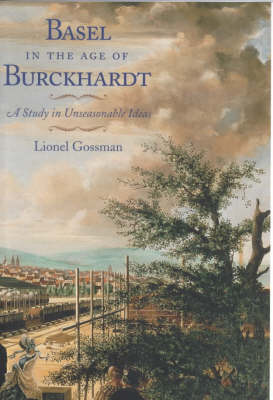In the 19th century, nationalism and democracy were on the rise in Europe, transforming old nation-states and leading to the creation of powerful new ones. Basel, with its legendary wealth, its 400-year-old university, and its tradition of humanist learning, clung to its ancient status as an independent city-republic within the loose Swiss Confederation. It owed its prosperity to its situation at the crossroads of France, the German states and the states of Southern Europe and to a vast network of international and intercontinental trading connections developed by its enterprising elite families. Its citizens looked out at the changes taking place around them and feared for their privileges, their prosperity and the political autonomy of their miniature state. By mid-century, Basel had become a focus of resistance to the optimistic and confident modernism of the time.
Lionel Gossman's sweeping work tells the story of Basel, this seemingly anachronistic hybrid of commercialism and classical republicanism, and of four major thinkers who retreated there: the historian Jacob Burkhardt, the philologist and anthropologist Johann Jakob Bachofen, the theologian Franz Overbeck, and the philosopher Friedrich Nietzsche. Focusing on the native Baselers, Burckhardt and Bachofen, Gossman offers the most comprehensive interpretive biographies and analyses of these figures and their work available in English. At the same time, he shows how their ideas are tightly interwoven with the culture, tradition and destiny of this unique and beautiful city. Today, as the developments these men decried continue to gain momentum, their "unseasonable ideas" emerge as fresh, provocative and troublingly ambiguous in their implications as they were 150 years ago.
- ISBN10 0226304981
- ISBN13 9780226304984
- Publish Date 15 June 2000
- Publish Status Out of Stock
- Out of Print 27 July 2021
- Publish Country US
- Imprint University of Chicago Press
- Edition 2nd ed.
- Format Hardcover
- Pages 618
- Language English
